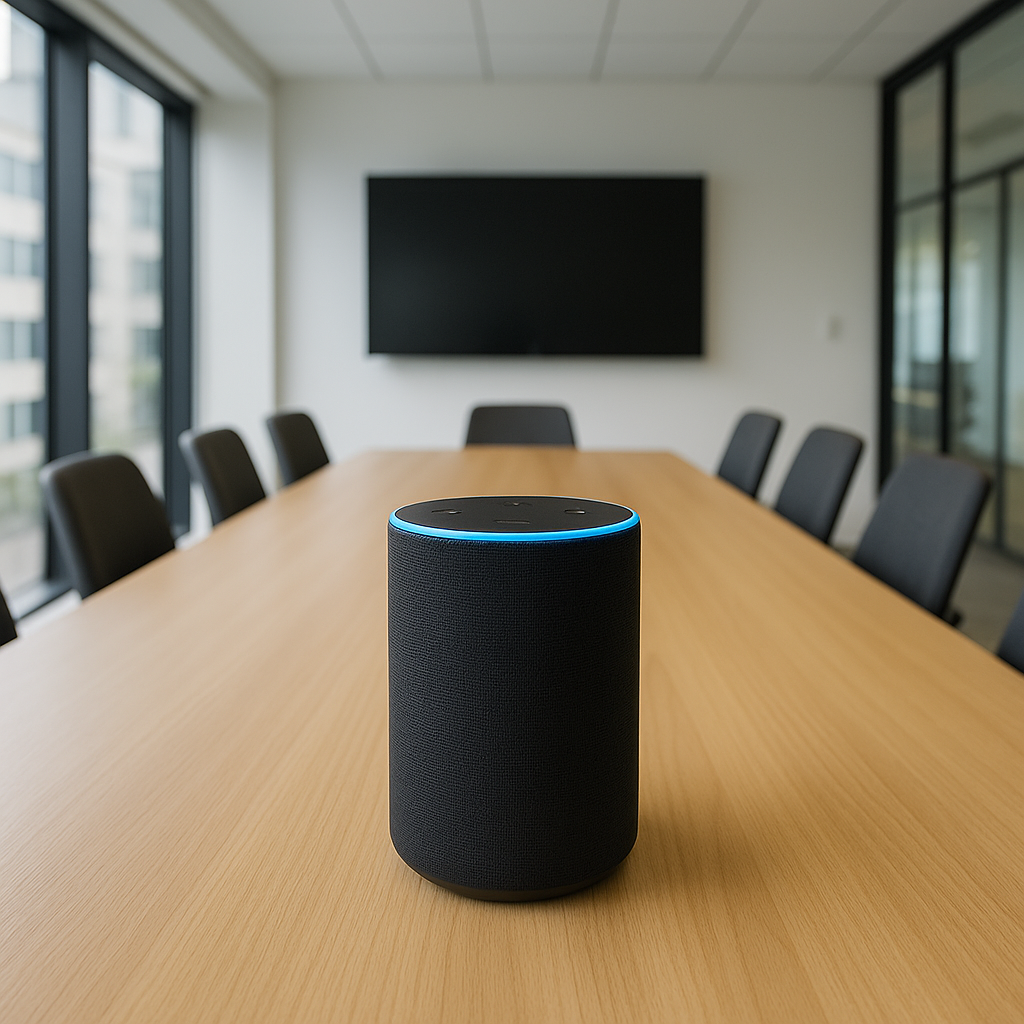I remember the first time I brought an workplace AI assistant into the office. I’d just bought a smart speaker for home and thought, why not try it at work too? Setting reminders, managing meetings with voice commands, even having it take notes during calls, it seemed like a productivity dream.
But it wasn’t long before the questions started creeping in.
While trialling one in an always-listening smart speaker client meeting room, someone asked, “Is that thing recording us?” It was a fair question, and honestly, I wasn’t entirely sure of the answer. That got me digging deeper, and what I found changed how I think about AI in the workplace.
They are helpful, but also potentially risky
Don’t get me wrong, tools like Alexa, Siri, and Google Assistant are incredibly useful. I’ve used them myself to stay on top of a packed schedule, fire off quick reminders and even integrate with calendar apps and task managers. They save time and reduce manual admin.
But in business environments, especially those that deal with sensitive data, it’s not that simple.
Many of these voice-activated devices are designed to be “always listening”, ready to respond to your voice. That sounds handy, until you realise it could also mean private conversations, client details, or even confidential project discussions are being picked up and possibly stored elsewhere.
I’ve seen teams fall into this trap without realising
I’ve worked with companies in finance and healthcare where data protection for AI assistants is non-negotiable. One firm had smart assistants dotted around the office for music and reminders, but no smart speaker security policy in place for how they were used or what data they might be accessing. When we investigated it, the risks were bigger than they’d imagined: unclear storage policies, third party data processing and no clear way to audit smart assistant usage or monitor what had been heard or shared.
What should you consider before bringing one in?
From my experience, here are the questions I now ask every time a client wants to introduce smart tech into their workplace:
- What kind of conversations or data might the device be exposed to?
- Is any of that information being stored or transmitted elsewhere, and can we control that?
- Do you have a written policy on smart device use in the office?
- Can you monitor and manage usage AI assistant usage centrally, or is it a free for all?
Smart tech can be a game changer, if it’s set up safely
I’m not anti AI, quite the opposite. But I’ve learnt that when it comes to the workplace, you have to strike a balance between convenience and control. Understanding enterprise voice assistant security and GDPR compliance regarding smart devices is essential.
If you’re thinking about introducing workplace AI assistants to your team, do it with your eyes open. Understand the risks, build a policy, and make sure your cybersecurity setup is ready to support secure AI assistant deployment.
If you’d like a hand working out the safest way to do that, I’m happy to chat. Get in touch at thinkconnect.co.uk/contact, and let’s make sure your smart tech works for your business, not against it.



